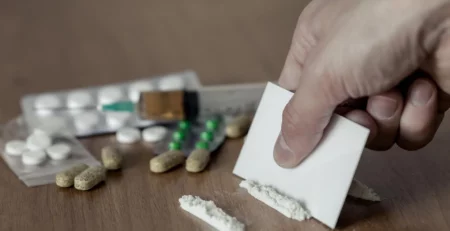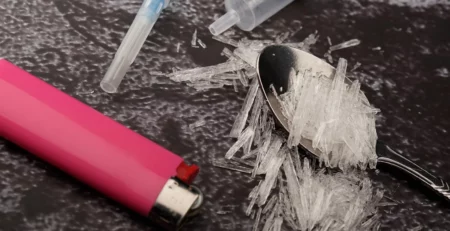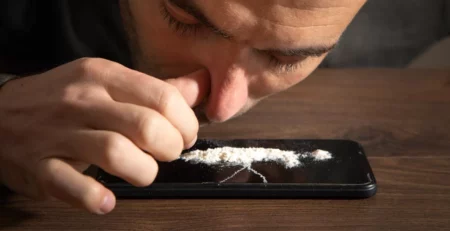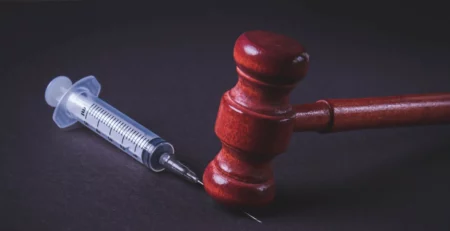12 Recovery Journal Prompts
Practicing Daily Journaling Prompts for Sobriety Success
Why should you keep a recovery journal? While very valuable as a record and motivational resource, at Icarus Nevada, we understand that it can be hard to get started.
Our recovery journal prompts can help you identify and express your thoughts and emotions and commit them to paper. As you start your better mental health and addiction recovery journey, the process of journaling will become a comfortable part of your routine.
Some past clients have described recovery journaling as speaking with a best friend. Unlike human friends, the journal will never discuss the shared thoughts.
Icarus Behavioral Health, located in Las Vegas, Nevada, recognizes that journal writing is a valuable, evidence-based tool to support better mental well-being. Our highly skilled team does more than provide addiction recovery; we also promote mental health for all.
We understand that trauma or other underlying mental health issues are a frequent cause of addiction.
Please keep reading to discover our addiction recovery journal prompts and why each one can support your well-being. Be sure to download the free PDF to print them for use later.
Addiction Recovery Journal Prompts for Better Mental Health

These journaling prompts are excellent for both the addiction recovery process and improving your overall mental health. Many who struggle with mental or behavioral health issues don’t abuse drugs or alcohol but engage in other inappropriate self-soothing activities.
Here’s the good news. Our journal writing helps address many similar recovery concerns. Our journal prompts can be reworded to suit your particular behavioral concern; they’re not limited to addiction treatment clients.
Get Effective Detox and Rehab Options at Icarus
Our Favorite Writing Prompts to Support the Recovery Process
As you consider the writing prompts, reflect on the addiction and recovery process. There’s no right or wrong way to answer, but the activity does require complete honesty.
You needn’t worry about grammar, spelling, or complete sentences. Work on your recovery journal at your own pace and focus on the experience in the moment.
When you work on your recovery journal every day, writing becomes a habit and a healthy coping tool.
Here are the 12 addiction recovery journal prompts:
1) Write a “Dear Future Self” Letter Describing Your Recovery Process.

Write a letter to yourself in the future. Share what you envision – the milestones you’ve reached and the life you will continue to strive toward. This addiction recovery prompt helps you maintain personal accountability and motivates you to continue with the healing process.
2) Explain Addiction (or Other Issues) in Your Addiction Recovery Journal
Writing down your current struggles can help you manage them and see new ways of addressing them. Share the details of your addiction or mental illness in your recovery journal, and it may help you gain clarity about your most difficult feelings.
You may also identify any additional resources you need for recovery. Be sure to share these additional needs with your therapist.
3) Write a “Dear Past Self” Letter About How You Achieved Sobriety or Stability
Reflect on your past experiences to understand what may have shaped your behaviors. Explore the progress you’ve made so far compared to the past. Acknowledging the growth you’ve achieved can boost your self-compassion.
4) Identify Your Biggest Trigger

Your triggers can lead to negative consequences and behaviors. They can cause a person to use drugs, drink alcohol, or engage in other harmful responses. What causes your behaviors? Is it one word that sets you off, a certain person who gets on your nerves, or a place where you suffered trauma?
Understanding these triggers is a key to success when developing new coping skills and creating a safe space for healing.
5) What Would You Say, If You Could Talk to (Insert Person)
You’re not the only one directly impacted; substance abuse can cause pain for your family members and friends. You might have tried to describe mental concerns to them, but your loved one did not seem to understand. Maybe it made you feel stuck or as if they would not listen.
Writing your “script” for this conversation can help you see the impact on your loved ones so you can explain it clearly. Write as if you could talk to them right now.
6) Write Your Life Story After the Addiction Recovery Process
Some journaling prompts are very open-ended to spark creativity – this is one of them.
Imagine living a new, mentally-balanced life after your recovery journey. You may visualize freedom from addiction or other negative behaviors. Write down details about what it looks like and your feelings about your accomplishments.
7) Set One Small, Manageable Goal

Babies don’t stand up from a crawl and start walking without practice. They take small, faltering baby steps, trying over and over again until they learn to stabilize their feet and legs. They don’t think too far into the future; they focus on where they want to go and toddle along imperfectly until they get there.
Goal setting does not always have to be long-term goals. For now, don’t worry about long-term goals. Set one goal. That might mean making one important phone call. Perhaps it’s learning one skill you’ll need in the future. Set that single, easy goal and work on it; you’ll have a quick boost of confidence and feel accomplished.
8) Write a Goodbye Letter to Your Last Mistake
It’s easy to dwell on a mistake, especially when struggling with mental illness. However, overthinking leads to self-doubt and can trigger additional negative feelings. Write a goodbye letter to your last mistake or any other judgment lapse that weighs on your mind.
Letting go of the past is essential when you hope to pursue sobriety and wellness. Don’t let this become an anchor around your waist. Write it down. Then visualize letting it go.
9) Describe Your Self-Care Routine
What does your daily routine for self-care look like? Describe it in detail and analyze what’s working for you and anything new you’d like to add.
Unconditional love for yourself is necessary to make significant progress toward recovery. Journaling about the small things you do to support your efforts will help you recognize the value of all the work you’re putting into caring for yourself.
10) Write a Letter to Yourself to Celebrate Progress

Write a letter to yourself, right now, in this present moment. Acknowledge your progress, emotions, or anything else on your mind. Describe your current mental space and document where you are in your recovery.
Contemplating where you are in your own life creates mindfulness. You become self-aware of your achievements so far, and give yourself credit for the work done, while acknowledging without judgment that you still have work to do.
11) Explore Reasons to Be Grateful
You have probably heard the phrase, “Count your blessings.” It’s held true for many years because gratitude is a mental game-changer. When you focus on being grateful, it helps overcome negative emotions and thoughts.
Your gratitude list doesn’t need to be complicated. At first, it might be an acknowledgment that you woke up sober or a memory of your happiest moment ever.
That’s fine – recovery journaling is a process, and you’ll soon find more positive things to document in your recovery journal.
12) Write a Blog Search Query and Post About Your Addiction or Struggles
What blog search term would someone use to learn about you? Consider that question, then write down a brief blog post about your struggles with addiction or mental illness. This exercise is for journaling purposes only; you don’t need to publish it.
Visualize how the blog entry would appear as it moves through the recent posts and categories. This visualization will help you imagine your addiction or behavioral health concerns moving from the present to your recent history and, finally, move the days of early recovery into your distant past.
Why Journaling Prompts Are Highly Effective for Recovery
When you write in a journal, you start changing negative thought patterns, an essential skill in recovery. Expressing your thoughts and emotions on paper helps you recognize cognitive distortions (negative but usually untrue ideas).
With that recognition, you can remold them into something positive. In other words, you reduce overthinking and anxiety and gain clarity by using writing prompts. To help support our clients as well as the broader behavioral health community, we offer the following journal prompt resources:
as well as informal testing tools such as:
- Do I have trauma quiz resource
- Religious trauma testing tool
What to Expect at Icarus Behavioral Health Nevada

The professional team at our Las Vegas recovery center is there to help you make life-altering changes. Here are just a few good reasons to entrust us with your recovery needs:
Professional Admissions Team
Our admissions representatives will obtain insurance approvals for you and schedule your treatment. All you need to do is call, and we take care of the details.
Full Continuum of Care
Icarus Nevada offers a range of services from inpatient treatment to outpatient care. We can treat all mental disorders, including depression, personality disorders, substance use disorders, PTSD, and more.
Evidence-Based Recovery Services
You’ll receive individual, group, and family therapies using holistic, evidence-based practices. We know recovery is a highly personal matter. We custom-fit these treatments to suit your specific needs.
Up To 100% of Rehab Costs Covered By Insurance – Call Now!
Icarus Nevada – Mental Health and Addiction Recovery Lives Here
You’ve searched for help, read reviews, and completed extensive research. Now you feel confident that you’re ready for lasting sobriety and freedom from mental disorders.
The caring professionals at Icarus Nevada are here to help you write a new chapter in your life and work on building a brighter future.
We recognize that being impacted by trauma or mental illness can lead to an imbalanced daily life. Our structured setting will help you feel more confident at every phase of recovery. It’s time to let go of the past self and mistakes. Embrace your future self and live a successful life – you can do this, with our help.
Call Icarus Nevada today to start your recovery program as soon as tomorrow.











